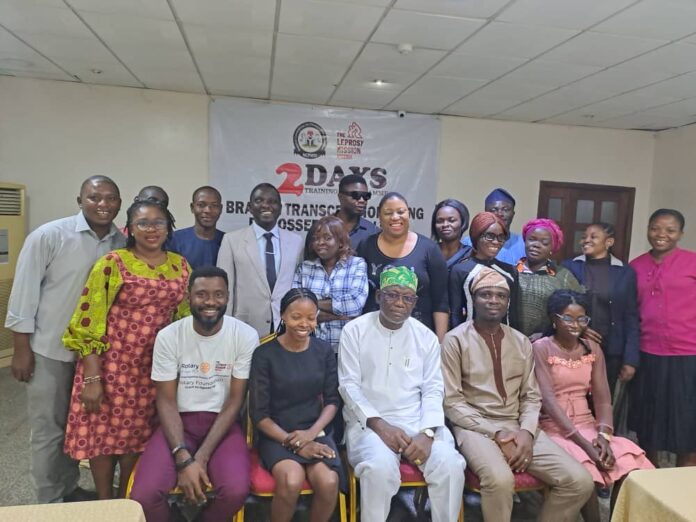Abuja, Nigeria – The National Commission for Persons with Disabilities (NCPWD) has taken a significant step towards enhancing the educational and professional opportunities for the visually impaired community in Nigeria. The Commission organized a transformative 2-day capacity-building workshop on Braille transcription using advanced embosser technology. The event, held on the 17th and 18th of July, 2024, aimed to equip participants with the skills necessary to convert printed materials into Braille format, thereby bridging the accessibility gap for the visually impaired.
The workshop is part of the ongoing efforts by NCPWD to leverage Assistive Technology to empower Persons with Disabilities (PWDs) in various fields. Established three years ago, the Braille centre at NCPWD has been a cornerstone in this mission. The recent training is a testament to the Commission’s dedication to not only provide technology but also ensure that individuals are well-versed in utilizing these tools.
A Vision for Inclusivity
Addressing the participants at the opening ceremony, the Executive Secretary of NCPWD, Dr. James David Lalu, represented by the Director of the Social Integration Department, Mr. Lawrence Idemudia, highlighted the Commission’s commitment to creating an inclusive society. “The inability of many visually impaired persons to access printed materials has been a significant barrier to their education and professional development,” Mr. Idemudia noted. “This training is a crucial step in providing an alternative that ensures inclusivity and accessibility.”
Dr. Lalu’s passion for enhancing the lives of the visually impaired was evident in his remarks. He emphasized the importance of making printed materials accessible, describing it as a driving force behind the establishment of the Braille centre. He assured participants of the Commission’s determination to procure more advanced equipment to streamline the transcription process.
Empowering Future Trainers
One of the key objectives of the workshop was to produce Braille tech-oriented individuals who can serve as future trainers. This initiative not only aims to increase the number of skilled professionals in Braille transcription but also to create job opportunities and additional income streams for the visually impaired.
“We are committed to making the Braille centre a hub of excellence that will attract the blind community towards research and education, ultimately generating income for those who are Braille literate,” Dr. Lalu stated. He also highlighted the potential for the training to empower participants with the requisite knowledge to become trainers, further expanding the reach and impact of the program.
Technical Insights
The workshop featured in-depth sessions led by experienced facilitators. Mr. Adeola Aina provided a comprehensive overview of handling Braille equipment, focusing on alphabet and numeric recognition. He explained how Embosser technology, combined with Optical Character Recognition (OCR) software and Duxbury Braille Translator, enables the transformation of printed materials into Braille.
Mrs. Olaniyi Dorcas, another facilitator, walked participants through the transcription process. She outlined the initial steps of purchasing and installing the OCR software license, connecting the scanner to the computer, and using the OCR icon to scan hard copies into editable formats. These formats can then be printed or embossed, making them accessible to the visually impaired.
Gratitude to Partners
Dr. Lalu expressed heartfelt appreciation to The Leprosy Mission Nigeria (TLMN) for their unwavering support in various disability support programs, including the Braille project. TLMN’s partnership has been instrumental in driving forward initiatives that improve the lives of PWDs in Nigeria.
A Bright Future Ahead
The 2-day workshop concluded with participants expressing enthusiasm and confidence in their newly acquired skills. The training not only provided practical knowledge but also inspired a sense of community and shared purpose among the attendees. As these individuals take their new expertise back to their communities, the ripple effect of this training will be felt across the country.
In a society where access to information is a key determinant of success, the NCPWD’s initiative to enhance Braille literacy through advanced technology is a significant milestone. It paves the way for a more inclusive future where the visually impaired can fully participate in education, employment, and other aspects of life.
With the commitment of the NCPWD and the continued support of partners like TLMN, the vision of a more inclusive Nigeria is steadily becoming a reality. The recent Braille transcription training is a testament to what can be achieved when dedication, technology, and community spirit come together.


